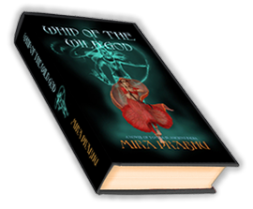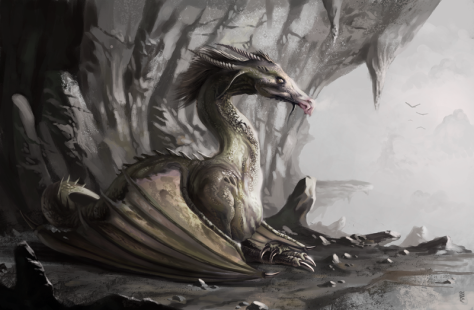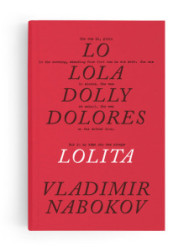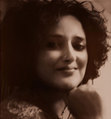Mira Prabhu's Blog, page 61
October 9, 2015
5 Things I’ve Learned From 5 Years Of Blogging
Robert says: “I haven’t had a terrible time with the “haterz” here on 101 Books, but I’ve had my fair share. I probably shouldn’t, but I like to poke and prod them and have a little fun sometimes. One time, a commenter told me that 101 Books was “the death of art and meaning,” and I swear to you I liked that comment so much I almost made it my blog’s tagline. “101 Books: The Death of Art and Meaning.”
If you’re doing something you enjoy, somebody’s going to have a problem with that. Why? Maybe they suck at it, or maybe they just like to troll on blogs. Whatever the reason…who cares? Go do what you love and let the dislikers continue to dislike.”
What I like about Robert’s posts are that they seem so down-to-earth and genuine. Read the original for more…
 Originally posted on 101 Books:
Originally posted on 101 Books:
I don’t know how long the average blog lasts—maybe a few months? 101 Books has been around for five years and, as blogs go, that’s pretty ancient. It’s like the Bush, Clinton, Kennedy families in politics—whether you like it or not, we never go away!
Over the years, I’ve learned a few things. Most of them by accident. When I started the blog, I just wanted to start a reading blog—more specifically, a reading blog that follows this little reading journey with the Time Magazine list.
I’ve screwed up a lot, but I’ve had a few wins too. And, today, I want to tell you a little about both. Here’s 5 things I’ve learned in my 5 years of blogging at 101 Books.
View original 729 more words


October 5, 2015
Monday Funnies with AUNTY ACID…
ha ha ha… “Some people come into our lives and leave footprints on our hearts…others come along and we want to leave footprints on their face.” Yes! You can trust Aunty Acid to always tell it like it is!!! And thank you, Chris Graham!
 Originally posted on Chris The Story Reading Ape's Blog:
Originally posted on Chris The Story Reading Ape's Blog:

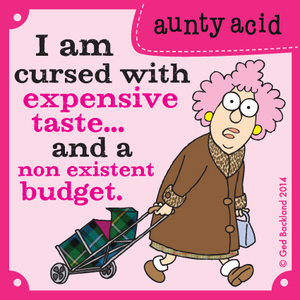


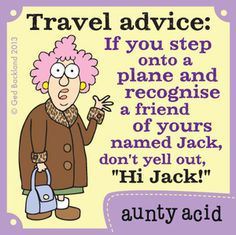




October 1, 2015
No Better than Solzhenitsyn’s Village Dogs
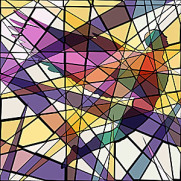 “T
he moral duty of the free writer is to begin his work at home: to be a critic of his own community, his own country, his own government, his own culture. The more freedom the writer possesses the greater the moral obligation to play the role of the critic. If the writer is unwilling to fill this part then the writer should abandon pretense and find another line of work: become a repairman, a brain surgeon, a janitor, a cowboy, a nuclear physicist, a bus driver…
“T
he moral duty of the free writer is to begin his work at home: to be a critic of his own community, his own country, his own government, his own culture. The more freedom the writer possesses the greater the moral obligation to play the role of the critic. If the writer is unwilling to fill this part then the writer should abandon pretense and find another line of work: become a repairman, a brain surgeon, a janitor, a cowboy, a nuclear physicist, a bus driver…
That’s all I ask of the author. To be a hero, appoint himself a moral leader, wanted or not. I believe words count, that writing matters, that poems , essays, novels – in the long run – make a difference. If they do not, then in the words of my exemplar Aleksander Solzhenitsyn, the writer’s work is of no more importance than the barking village dogs of the night. The hack writer, the temporizer, the toady, and the sycophant, the journalistic courtier (and what is a courtier but a male courtesan?), all of those in the word trade who simply go with the flow, who never oppose the rich and powerful, are no better in my view than Solzhenitsyn’s village dogs. The dogs bark; the caravan moves on.” Edward Abbey, The Writer’s Credo
*********************************************************************************************
 Abbey’s words transported me back to the early 90s in Manhattan, when I first decided to focus my energies on writing spiritual fiction.
Abbey’s words transported me back to the early 90s in Manhattan, when I first decided to focus my energies on writing spiritual fiction.
I was seeing a talk therapist then, in an attempt to work through my general confusion. Simultaneously I dived into the liberating truths of eastern philosophy, trained as a teacher of Hatha Yoga, tackled my addictions head-on, and learned to cull out spiritual buddies from run-of-the-mill company whose negative energies were bringing me down.
This phase was far from easy or pleasant and my frustration grew intense. One Saturday morning I cracked up while cleaning my apartment: turning off the vacuum cleaner, I collapsed onto my wooden floor and wept for all my broken dreams. Then, with all the force of a hammer, it struck me that I had to make some solid decisions in order to dissolve this angst.
 Grabbing a notepad, I jotted down all the things I was good at. Ah, I thought, as Joseph Campbell’s advice to ‘follow your bliss’ flashed across my mind—the problem stemmed from dispersing my energies in too many directions. To find sweet water, one must dig deep in one place; Jack-of-all-trades but master-of-none is a hard place to be for one who craves depth.
Grabbing a notepad, I jotted down all the things I was good at. Ah, I thought, as Joseph Campbell’s advice to ‘follow your bliss’ flashed across my mind—the problem stemmed from dispersing my energies in too many directions. To find sweet water, one must dig deep in one place; Jack-of-all-trades but master-of-none is a hard place to be for one who craves depth.
Two things in my list jumped out at me: music and writing. When I played music, or poured my heart out in words, relative time seemed to vanish; I entered a zone where nothing mattered but the soaring of my soul.
But music as a career I quickly dismissed: I had neither the training nor the thick skin I felt was needed to make it in the west as a singer/guitarist. Which brought it down to one: Writing. And it was on that oddly magical morning that I decided to focus on expressing my thoughts via the written word.
Encouraged by a friend, I began to write short stories. Each dealt with an Indian woman who battled terrible odds in order to resolve a difficult situation. My protagonists were of all ages, castes, incomes and educational levels; all they had in common was their courage in taking on a variety of goons. I titled the collection SACRIFICE TO THE BLACK GODDESS (the Black Goddess is Kali, the deity known to fight evil) and managed to get a good literary agent. Publishers liked the collection but all of them were unanimous that I should first write a novel.
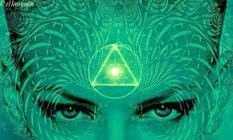 But what to write a novel about? The answer came years later when I stumbled onto the exciting philosophy of Tantra. Easy to see that folks in both east and west thought Tantra was all about free sex, but I was becoming convinced that Tantra was a highway to heaven for even the celibate. In fact, masters such as the Dalai Lama and other mystics practiced Tantra—minus a human mate.
But what to write a novel about? The answer came years later when I stumbled onto the exciting philosophy of Tantra. Easy to see that folks in both east and west thought Tantra was all about free sex, but I was becoming convinced that Tantra was a highway to heaven for even the celibate. In fact, masters such as the Dalai Lama and other mystics practiced Tantra—minus a human mate.
And so Whip of the Wild God: A Novel of Tantra in Ancient India was born. I finally published it after twenty years, and after at least seven major rewrites! Only then did I turn my energies to a novel I’d been dreaming about since the millennium—Krishna’s Counsel, still a work-in-progress. And then will come my third, Copper Moon Over Pataliputra, which I hope to finish before my spirit leaves this planet.
Edward Abbey spoke of the external battle that so many writers take on so brilliantly. But my battle (both as a person and as a writer) concerns the inner struggle against darkness. The subject of all three of my sagas concerns the fusion of finite self (mini-me/ego) with Infinite Self. And in this way I feel my creative work is in harmony with Abbey’s advice to the sincere writer—to be true to oneself, no matter what.

Photo Credit: Bernd Kalidas Flory
Greetings from Arunachala, Shiva in the form of a sacred mountain, where the seeker of freedom is aided in the quest to be permanently free of desire and fear by the destruction of the ego!
Follow Blog via Email
Enter your email address to follow this blog and receive notifications of new posts by email.
Click the buttons below to SHARE if you liked this post.


September 29, 2015
Freeing the Dragons of the Lair
I have always admired dragons and here’s some great writing from D. Wallace Peach about Adaryn…who is about to fly free, a great and shimmering being into a vast sky…
 Originally posted on Myths of the Mirror:
Originally posted on Myths of the Mirror:
The cell’s iron door swung open, heavy and groaning on tired hinges. Adaryn paused in the broad aisle, blood racing, hands slick with sweat. The reek of foul hung thick in the heat, burning his nose. At the aisle’s end, chains clanked as the winch turned. Massive stable doors rumbled open, welcoming the remaining rays of day and hot breath of summer wind. The hooded dragon swung its tufted head toward the sunlight spearing the stale air. It pulled against battered shackles, swaying with the low thrum and hum of the song that echoed in Adaryn’s chest.
Across the aisle, Hedd and his grandson, Cadan, skyriders of the old Way, stood with eyes gazing inward, calling the dragon down in Belonging. They opened their souls, beckoning the creature into their blood, bones, and heart, their breath filling the dragon’s spaces.
This was Adaryn’s dragon; at least, in his mind…
View original 550 more words


September 25, 2015
Evicted!
This post touched my heart. If any of you can spare something for Anna Dobritt and her brother, please use the link below the post. Any amount will probably be a blessing. Generosity is its own reward – but according to classical karmic theory, whatever we give from our hearts comes back to us at least quadrupled.
 Originally posted on Anna Dobritt -- Author:
Originally posted on Anna Dobritt -- Author:
My brother and I were evicted September 23, 2015. We need to raise funds to find a place to stay. My brother works at McDonald’s and I am unable to work due to health issues. We really need the help. I cannot live alone so we have to stay together. My brother is a veteran and is trying so hard to help us get back on our feet. We had to take our two cats to a no kill shelter and that broke our hearts. Please help us.
https://www.gofundme.com/a25nf0


September 24, 2015
The 12 Best New Yorker Cartoons on Writing and Literature
“Make up your mind, Charles Dickens!” said the editor. “Was it the best of times or the worst of times? It can’t possibly have been both…”
Hats off to the New Yorker for this mini collection of cartoons on writing and literature…always looked forward to my copy when I lived in Manhattan.
 Originally posted on readers+writers journal:
Originally posted on readers+writers journal:
 12 of the Best Cartoons from the Best Literary Magazine Ever
12 of the Best Cartoons from the Best Literary Magazine EverThe New Yorker Magazine has been publishing reportage, fiction, satire, poetry and current events since 1925, and over the past 90 years has become an American icon and beacon for new writing, ground-breaking editorial and reporting, and timely satire. The magazine has launched the careers of countless writers and published contributions from the likes of Roald Dahl, Joan Didion, Margaret Atwood, E. L. Doctorow, Chang-Rae Lee, Phillip Roth, Dorothy Parker, Ogden Nash, and Sylvia Plath.
Based in New York, the magazine’s reviews and event listings usually focus on the cultural life of its home city, but The New Yorker has a broad audience outside of New York. Over its nearly 100 year history it has become perhaps best known for its illustrated and often humorous covers, its commentaries on American pop culture, and the single-panel cartoons that are included in each issue. Reading the New Yorker cartoons and sometimes trying to…
View original 156 more words


September 22, 2015
Why Does Rumi See Life As a Dream That Must Be Interpreted?
Life, to Rumi, was a great dream that we humans had to interpret in order to evolve. Read on for more of Rumi’s gorgeous insights…and thank you for sharing, Dr. Steven Fox!
 Originally posted on Dreams: Guide to the Soul is a dream interpretation book and ebook:
Originally posted on Dreams: Guide to the Soul is a dream interpretation book and ebook:
 Enter Rumi’s World with Dreams
Enter Rumi’s World with Dreams
The great Rumi shows his profound understanding of life:
“THE DREAM THAT MUST BE INTERPRETED
This place is a dream.
Only a sleeper considers it real.
Then death comes like dawn,
and you wake up laughing
at what you thought was your grief.
But there’s a difference with this dream.
Everything cruel and unconscious
done in the illusion of the present world,
all that does not fade away at the death-waking.
It stays,
and it must be interpreted.
All the mean laughing,
all the quick, sexual wanting,
those torn coats of Joseph,
they change into powerful wolves
that you must face.
The retaliation that sometimes comes now,
the swift, payback hit,
is just a boy’s game
to what the other will be.
You know about circumcision here.
It’s full castration there!
And this groggy time we live,
this is what it’s like:
A man goes…
View original 189 more words


September 18, 2015
10 Obscure Literary Facts for Book Lovers
“Vladimir Nabokov’s classic novel Lolita was turned down by 5 publishers. So controversial was the subject matter (in which an adult man falls obsessively in love with a tween girl) that Nabokov himself planned to publish it under a pseudonym.” The rest is history – Lolita “is now widely considered one of the greatest books of all time and appears on “best of” lists like Time Magazine’s 10 Greatest Books of All Time, and Modern Library’s 100 Greatest Novels.” Read on for more fascinating facts about great writers and their work…and thank you, Readers Writers Journal, for a great post.
 Originally posted on readers+writers journal:
Originally posted on readers+writers journal:

Ten Things You Don’t Know About Your Favorite Books and Authors
via Thought Catalog
1. Vladimir Nabokov’s classic novel Lolita was turned down by 5 publishers. So controversial was the subject matter (in which an adult man falls obsessively in love with a tween girl) that Nabokov himself planned to publish it under a pseudonym. But the name on the front cover, it turned out, was the least of Nabokov’s problems. Though publishers Viking, Simon & Schuster, New Directions, Farrar, Straus, and Doubleday all agreed the manuscript for Lolita had the makings of a masterpiece, none were brave enough to take on the public uproar that might ensue once readers got a look at the finished book.
Nabokov finally convinced a French publisher of dubious reputation, Olympia Press, to print his tragicomic ode to American mores, inappropriate love, and obsession. When it first appeared in 1955, Lolita met with little…
View original 588 more words


Really Bad Book Reviews
“When it’s a review of a major book, something so big that a bad review won’t make a dent, I don’t mind so much. I just get annoyed when people do this to authors who haven’t yet made a name for themselves, for whom each review or rating could mean the difference between someone picking up their book or not. It’s just rude, it’s pointless and it gives user-driven reviewing a bad name. It’s nearly as bad as reviewers who get paid to review giving 5 stars to everything, even when their review was mostly negative…”
Now read on…and thank you for an interesting post, Bella!
 Originally posted on bookarahma:
Originally posted on bookarahma:
Ever read a book review so bad that you wanted to obliterate it from existence, be it on Amazon, Booktube or Goodreads?
I just did. I’m still in shock.
Sometimes, a bad review can be funny. Like when you see someone bragging about having found this “obscure” literary masterpiece that you’ve probably never heard of because you’re a filthy pleb, and it turns out to be The Shining or DavidCopperfield or something equally ridiculous and well known. You laugh, you move on.
What if the review enrages you? Like a prudish and thinly hidden anti-Semitic review of The Diary of Anne Frank? Do you say anything at that point, or do you shake your head, wish humanity wasn’t so horrible, then forget about it?
What if it’s a really ridiculously dumb 1 star review that’s dragging the poor author’s overall rating down, potentially putting off buyers who…
View original 473 more words


September 17, 2015
Salman Rushdie: “Everyone is upset all the time.”
Khomeini put Salman Rushdie’s head on the block after the publication of his 1988 Satanic Verses. That didn’t stop Rushdie from speaking his mind about highly sensitive subjects…nor does he have much patience for Internet outrage. “I think we have to just turn that sound off and turn away from that unpleasant noise and just get on with doing what we do,” he says.
Which leads to the question: why are we so easily offended by the opinions of others expressed via cyberspace? My personal stand is that when we are not truly confident of our own views, we are more easily outraged….what’s yours? Thank you 101 Books for yet another thought-provoking post.
 Originally posted on 101 Books:
Originally posted on 101 Books:
If you’re easily offended, and if you’ve never read Salman Rushdie’s work, then you might want to stay away from it.
Rushdie has a dark sense of humor and doesn’t mind poking at different aspects of culture and religion. After publishing Satanic Verses in 1988, Rushdie routinely received death threats. In 1989, Ayatolla Khomeini–Iran’s spiritual leader at the time–pronounced a fatwa calling for Rushdie’s execution. I’m guessing Rushdie doesn’t vacation in Iran. He’s still on the hit list of Islamic extremists, like Al Qaeda, to this day.
I’ll talk more about this next week…but, for now, let’s just say Rushdie probably doesn’t have a lot of tolerance for easily offended people.
NPR interviewed Rushdie about his latest novel, Two Years Eight Months and Twenty-Eight Nights, and I thought this bit was insightful:
View original 234 more words




